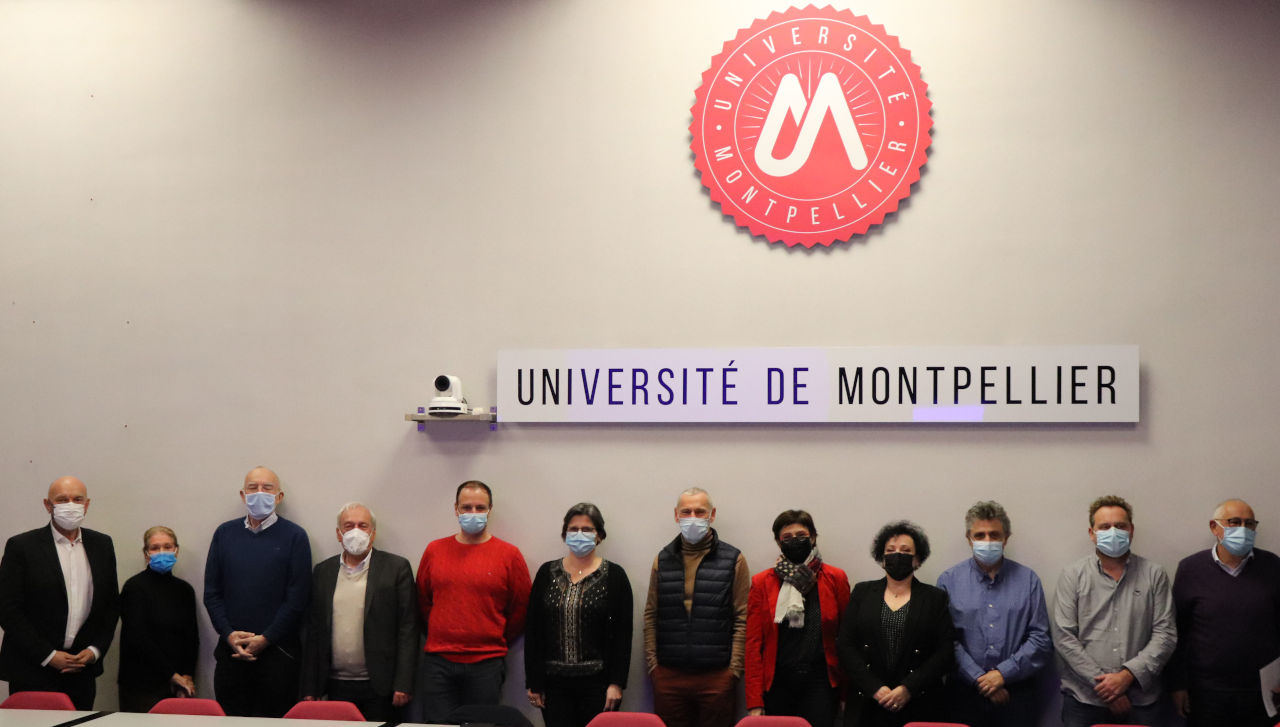The University of Montpellier establishes a Research Ethics Committee
A multidisciplinary, independent, and impartial forum for reflection, the Research Ethics Committee of the University of Montpellier, officially established on February 8, 2022, will enable Professors and researchers to submit their research projects and protocols involving human subjects for ethical review, particularly on issues related to personal data, privacy, etc.
This marks a new stage in the establishment of the University of Montpellier's governing bodies since its transformation into an experimental public institution. By establishing this committee, Philippe Augé, President of the University of Montpellier, Jacques Mercier, Vice-President in charge of research, and Marie-Christine Sordino, Vice-President in charge of ethics and professional conduct, intend to demonstrate the University of Montpellier's commitment to honest, ethical, and responsible research. " This requirement is a prerequisite for the worldwide recognition of our university's scientific excellence," said the president of UM.
The creation of this Research Ethics Committee reinforces the measures put in place by the University of Montpellier to promote awareness of the importance of ethical and professional principles in response to questions raised by scientific progress and its contemporary societal repercussions, regardless of the field of research. The Research Ethics Committee may, for example, be consulted by project leaders for:
- an ethical opinion on the development of new protocols;
- an ethical opinion in support of funding applications;
- an ethical opinion in support of responses to internal calls for projects, but also and above all to regional, national, and international calls for projects;
- an ethical opinion at the request of scientific journals.
The Committee will not deal with the field of interventional (or biomedical) research, which is governed by the Jardé Act[i] and its implementing decree[ii]. Such research falls under the jurisdiction of the committees for the protection of persons. Thus, in addition, the creation of this Research Ethics Committee will make it possible to cover all scientific fields at the University of Montpellier and the École Nationale Supérieure de Chimie de Montpellier, which is its component institution. Among the measures already in place are the development of a charter of good practice in scientific integrity and the application of the Nagoya Protocol on access to genetic resources.
At the inaugural meeting of the Research Ethics Committee, Thierry Lavabre-Bertrand, professor and hospital practitioner at the Montpellier-Nîmes Faculty of Medicine and Nîmes University Hospital, and Marie-Elisabeth André, professor emeritus of private law and criminal sciences and honorary dean of the Faculty of Law and Political Science, were elected chair and vice-chair, respectively. The Committee is composed of the following individuals:
- Thierry Lavabre-Bertrand, Professor and Head of Department, Faculty of Medicine and University Hospital of Nîmes (chair);
- Marie-Elisabeth André, professor emeritus at the University of Montpellier, honorary dean of the Faculty of Law and Political Science of Montpellier (vice-president);
- Edmond Baranès, professor at the University of Montpellier, MRE, director of the economics department;
- Anne Sophie Cases, professor at the University of Montpellier, MRM;
- Philippe Poignet, professor at the University of Montpellier, director of LIRMM;
- Michael Smietana, professor at the University of Montpellier, IBMM;
- Anne Laure Bonnefont, research engineer, INSERM, vice-chair of the Occitanie-Méditerranée animal experimentation ethics committee;
- Rémi Bertrand, attorney at law, Montpellier Bar Association;
- Olivier Jonquet, Emeritus Professor and former Chair of the Ethics Committee at Montpellier University Hospital.
All practical information is published on the UM intranet site. The secretariat for this body is provided by the Directorate for Research and Doctoral Studies (DRED).
[i] Law of March 5, 2012 on research involving human subjects
[ii] Implementing Decree No. 2016-1537 of November 16, 2016 (Articles R1121-1 and R.1121 of the Public Health Code)
